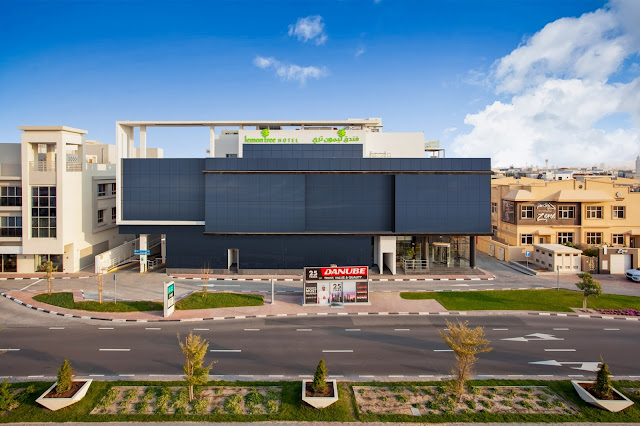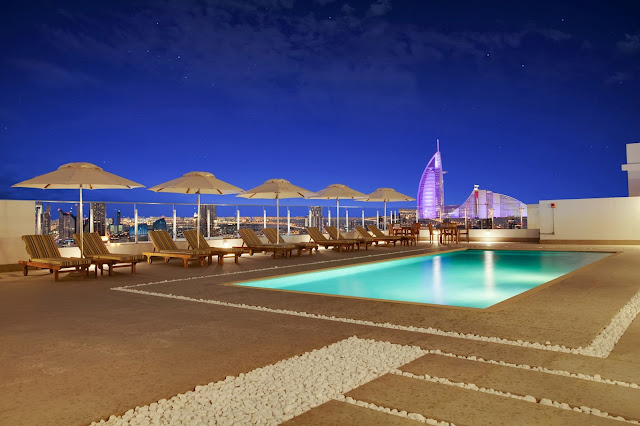This is an EXCLUSIVE story. Do not reproduce or use in any manner whatsoever without the writer's permission.
After acquiring a majority stake in India’s largest independent hotel chain Sarovar Hotels & Resorts back in 2016, one of Europe’s largest hospitality firms Louvre Hotels Group (LHG) is now looking to further consolidate its presence in the Indian hospitality market. This is being done by taking over the management contract portfolio of Golden Tulip Hotels & Resorts (GTHR) and bringing them under the management of Sarovar Hotels & Resorts.
Golden Tulip currently manages 24 hotels (as per https://www.goldentulip.com/en-us/hotels-india) under Royal Tulip, Tulip Inn and Golden Tulip brands across India. It is a separate hospitality firm in partnership between Louvre Hotels Group and veteran hotelier and restaurateur Vimal Singh who is managing director, Golden Tulip Hotels & Resorts, South Asia.
According to industry sources, as a result of this consolidation initiated by LHG, Sarovar Hotels is in the process of taking over the management contract of properties that are currently being operated by Golden Tulip Hotels in India.
According to industry sources, as a result of this consolidation initiated by LHG, Sarovar Hotels is in the process of taking over the management contract of properties that are currently being operated by Golden Tulip Hotels in India.
“In fact, the management contract of Golden Tulip Hotel in Lucknow is already with Sarovar since a while now. It’s work-in-progress though for hotels in Jaipur and Navi Mumbai as we speak. Over the coming months, Sarovar will take over management contracts of a majority of hotels that are currently under Golden Tulip Hotels & Resorts in India,” said a source requesting not to be quoted.
The possibilities of properties in Golden Tulip Hotels & Resorts network in India coming under a single entity were being contemplated ever since Louvre Hotels Group acquired majority stake in Sarovar Hotels & Resorts. However, Saurabh Chawla, global chief development officer, LHG, during an earlier interaction back in September 2018, had said that Vimal Singh is a partner and that LHG was never looking at acquiring his stake in the company.
”He still is a partner. The commercial arrangements in the scope of the partnership, there is no intention to acquire his stake. I think the idea is to find synergies between the two entities because we are a shareholder in the two and that makes sense and that’s what we are evaluating at this point in time,” Chawla had said then.
The overall hotel industry scenario was considerably better back then and provided no compelling reason for a possible take over of the Golden Tulip portfolio. However, that’s not true anymore. The COVID-19 pandemic has completely devastated the hospitality business scenario globally and more so in India.
The Indian hospitality industry has been under lockdown since March 2020. As a result, owners and managers of hotels, resorts, restaurants across categories are struggling for survival. Furthermore, in the absence of any support, in terms of a financial relief package from the government, most business owners are contemplating shutting shop in the near future.
”He still is a partner. The commercial arrangements in the scope of the partnership, there is no intention to acquire his stake. I think the idea is to find synergies between the two entities because we are a shareholder in the two and that makes sense and that’s what we are evaluating at this point in time,” Chawla had said then.
The overall hotel industry scenario was considerably better back then and provided no compelling reason for a possible take over of the Golden Tulip portfolio. However, that’s not true anymore. The COVID-19 pandemic has completely devastated the hospitality business scenario globally and more so in India.
The Indian hospitality industry has been under lockdown since March 2020. As a result, owners and managers of hotels, resorts, restaurants across categories are struggling for survival. Furthermore, in the absence of any support, in terms of a financial relief package from the government, most business owners are contemplating shutting shop in the near future.
Continuous fixed costs coupled with no visibility on revenues whatsoever are adding to the challenges of business continuity. Hotel companies with strong balance sheet could probably weather the storm however, a large majority will succumb owing to the after effects of the corona virus outbreak. While efforts are being made to contain the spread of this deadly virus, the overall situation with numbers increasing significantly on a daily basis isn’t looking very encouraging.
An industry poised for growth is now staring at a bleak future. All the planned milestones and projected revenue and profitability targets have gone awry. These not so encouraging signs, industry sources said, would have possibly led to a rethink by Vimal Singh and Louvre Hotels Group resulting in a decision to hand over the management of hotels in the Golden Tulip portfolio to Sarovar Hotels.
“I believe the Golden Tulip partnership between Vimal Singh and Louvre Hotels Group will also complete its tenure over the next couple of years. In a growing business scenario waiting it out would have given a higher payout to the exiting partner. However, with uncertainty looming over the Indian hospitality industry, I think it’s best to move out if one has managed to negotiate a good deal,” said a hotelier on conditions of anonymity. Financials pertaining to this deal could not be ascertained.
In September
2018, LHG had partnered Indian firm Orange Tiger Hospitality (OTH) to
introduce its new brand 'Kyriad' in the Indian hospitality market. As
part of the master franchise agreement, OTH would operate and manage
Kyriad branded hotels in India and the Indian sub-continent i.e. Nepal,
Sri Lanka, Bangladesh, Bhutan, Maldives, Pakistan and Mauritius.
The
master franchise with OTH is for a 15-year tenure and the Indian partner
had then committed to launch eight hotels under Kyriad. LHG had also said then that it plans to use a similar master franchise route to introduce its two other
brands viz. Première Classè and Campanile in the Indian market over the
coming years.
Owned by one of China's leading travel and tourism conglomerates, Jin Jiang International Co Ltd Louvre Hotels Group (LHG) is a major player in the global hospitality industry with over 1,500 hotels and in 54 countries. The hospitality firm operates in segments ranging from one-star to five-star with the its historic brands viz. Première Classe, Kyriad, Campanile, Tulip Inn, Golden Tulip, Royal Tulip), the five brands of the Sarovar Hotels network in India, the french Group Hôtels and Préférence and Chinese brand Metropolo.
(The writer is a Mumbai-based independent business journalist and has extensively covered diversified consumer businesses over the last two decades. He can be reached at hello@ashishktiwari.com)
(The writer is a Mumbai-based independent business journalist and has extensively covered diversified consumer businesses over the last two decades. He can be reached at hello@ashishktiwari.com)








